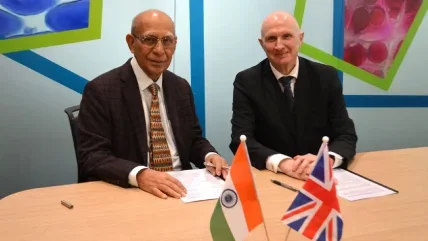
India-based medical research organisation SKAN Research Trust and UK-based food and health research centre Quadram Institute have partnered to develop new microbial therapies.
The partnership will use Quadram’s TraDIS-Xpress platform to study the action of traditional medical compounds on bacteria to reformulate and develop novel antibacterial regimens.
TraDIS-Xpress (transposon-directed insertion-site sequencing) is a high-resolution whole-genome assay that identifies the genes that may affect bacterial fitness in any given condition.
The platform improves upon conventional transposon mutagenesis approaches and helps determine how gene expression and gene deletion affect bacterial fitness.
In addition, TraDIS-Xpress facilitates the investigation of essential genes that cannot be inactivated and therefore cannot be assayed by other approaches.
Quadram said that its TraDIS-Xpress platform will help uncover new antimicrobial agents and develop better prebiotics and probiotics for health promotion.
Quadram Institute Bioscience director Ian Charles said: “I’m excited to see the cutting-edge genomic technology and expertise we have here in Quadram supporting our valued partners at the SKAN Research Trust to benefit the health of the people of India.”
SKAN chairman and managing trustee Ashok Soota said: “The research on novel microbial therapies raises our collaboration with QIB to a whole new level.
“We are grateful to Ian Charles for including SKAN as a partner in this transformational initiative.”
SKAN and Quadram will jointly conduct the study, led by Quadram principal investigator Mark Webber and SKAN’s deputy director Yogesh Shouche.
The study is part of a broader partnership agreement between the two organisations.
As part of the joint study, SKAN researchers will be trained on the TraDIS Xpress platform at the Quadram Institute in Norwich Research Park.
The partnership will generate data from large Indian cohorts that will help develop therapies specific to Indians.
Quadram Institute Bioscience Group leader Mark Webber said: “This project highlights the potential of the TraDIS Xpress platform for identifying and understanding the genetic basis behind bacteria’s enormous capacity to adapt for survival.”
SKAN deputy director Yogesh Shouche said: “The three-year project will also study the mechanisms of drug resistance for key pathogens relevant to India and the action of selected food additives used in India on the growth of selected gut microbes.”






